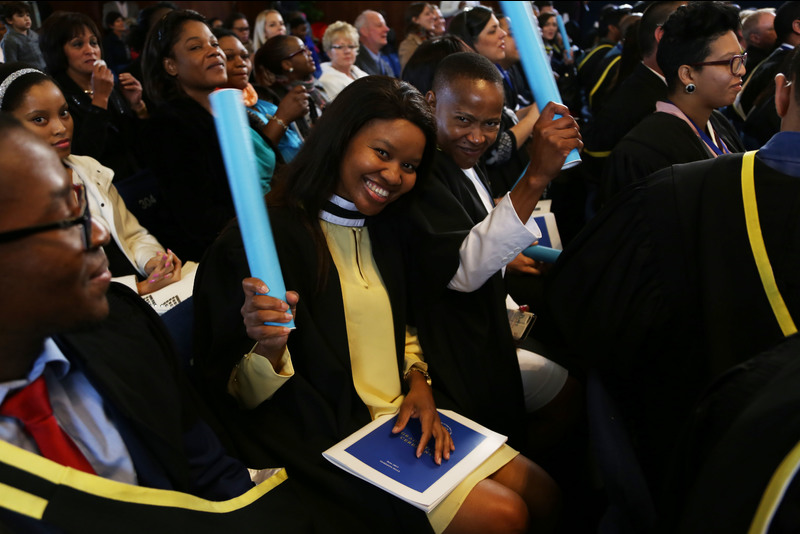R10 million to develop financial skills
20 April 2017
The development of much-needed skills for the financial services sector in South Africa has been given a boost by a collaborative donation of R10 million over five years from Nedbank and Old Mutual to the African Institute of Financial Markets and Risk Management (AIFMRM) in the Faculty of Commerce at the University of Cape Town (UCT).
AIFMRM director, Professor David Taylor, says that the university is delighted with the endowment and notes that a significant number of the major banks and insurance companies in South Africa have now invested in the institute.
In a further show of support, the Banking Sector Education and Training Authority (BANKSETA) contributed over R5.25 million in bursary funding for AIFMRM in 2017.
“These are significant contributions and a vote of faith in what we are doing at the Institute,” said Professor Taylor. “The Nedbank and Old Mutual investment will help us to expand our operations, and to produce more graduates that will be able to contribute to the sector.”
There is a significant skills shortage across the board in the financial services. There is also a growing necessity for risk management professionals that are able to navigate fast-changing and technically sophisticated modern financial services roles.
 Prof David Taylor, director of the African Institute of Financial Markets and Risk Management (AIFMRM) in the Faculty of Commerce. Photo Michael Hammond.
Prof David Taylor, director of the African Institute of Financial Markets and Risk Management (AIFMRM) in the Faculty of Commerce. Photo Michael Hammond.
Industry-ready graduates
“The truth is that the breadth of knowledge and abilities required to be truly effective at this level in the financial sector is beyond an undergraduate education,” said Taylor. “It was this realisation that prompted the industry to collaborate with UCT to establish an institute that focuses on specialised postgraduate financial services education and emphasises producing job-ready graduates.”
Judy Faure, the chief risk officer at Old Mutual, said, “We know we have a vital role to play in driving socioeconomic development and building a better and more inclusive society. We will be working closely with AIFMRM to ensure students are gaining a deeper level of financial skills.”
Anél Bosman, managing executive of the markets business at Nedbank CIB, agreed. “We believe in the work done by AIFMRM in building capacity and deepening quantitative skills.”
She says the banking group supports the institute and its programmes, which form part of its corporate responsibility in creating a sustainable platform for growth and transformation in South Africa.
The courses
At present, the AIFMRM offers two master’s degrees in collaboration with UCT’s School of Management Studies. The MCom in Risk Management of Financial Markets and the MPhil in Mathematical Finance are rigorous academic programmes with a strong practical and industry-related focus. The latter degree is ranked in the Top 50 Financial Markets Master’s Programmes in the world by ranking agency, Eduniversal.
“We carefully designed these programmes in collaboration with industry to ensure we are meeting their needs,” said Professor Taylor.
There is an “apprenticeship ethos” in both programmes that is geared towards preparing students for the workplace by simulating experiences that they are likely to encounter. They are also equipped with a host of “soft skills” to prepare them for success.
“We expect them to be professional from day one. They learn to be aware of the impression they give. How they dress and talk to people matters.”
Most South African students enrolled on AIFMRM postgraduate programmes receive bursaries or scholarships and a strong transformation agenda underpins the selection and promotion of graduates on the programmes. At present, the majority of students are black, coloured or Indian South Africans.
Professor Taylor says that the donor funding has been largely invested in the master’s programmes, including hiring additional support for the students.
“The uptake is pretty rapid. From last year’s cohort, everyone who wanted a job gained employment. We will continue to improve and expand in line with the Institute’s vision to increase the extent and depth of the financial service expertise on the continent.”
 This work is licensed under a Creative Commons Attribution-NoDerivatives 4.0 International License.
This work is licensed under a Creative Commons Attribution-NoDerivatives 4.0 International License.
Please view the republishing articles page for more information.










